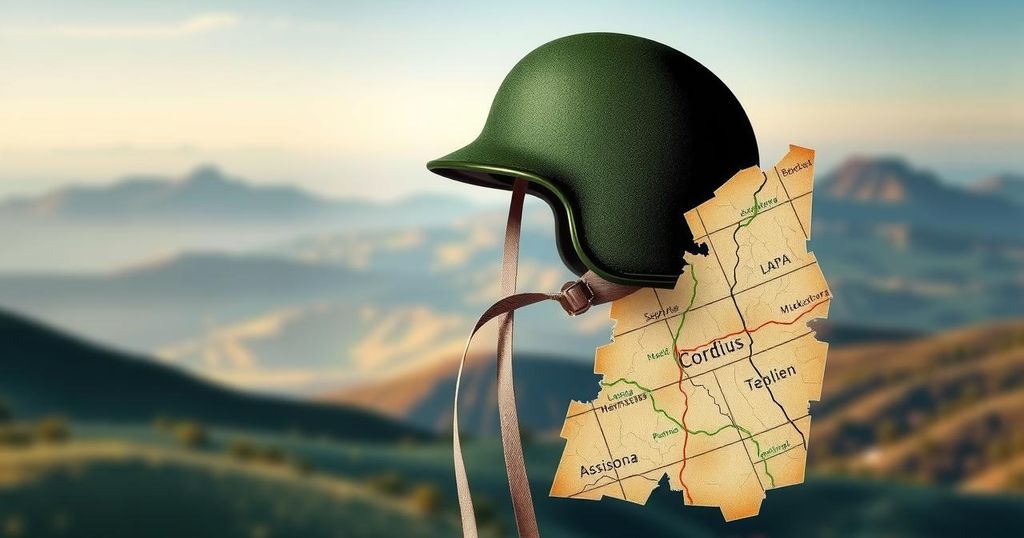Ukrainian Forces Capture North Korean Soldiers, Revealing Foreign Involvement

Ukrainian forces captured two North Korean soldiers in January, confirming North Korea’s involvement in the conflict. The young captives elicited sympathy from Ukrainian soldiers, who provided medical aid. A second soldier attempted suicide rather than be captured, indicating the severity of their situation. These events highlight the troubling dynamics of the ongoing conflict and the complex realities faced by soldiers on the ground.
In January, Ukrainian forces captured two North Korean soldiers, marking the first concrete evidence of North Korea’s direct involvement in the ongoing conflict in Ukraine. These young captives, filled with an unwavering resolve yet lacking battlefield experience, attracted a mix of curiosity and sympathy from their Ukrainian captors during two separate missions on January 9.
The capture validated previous claims by Ukraine, South Korea, and the United States that thousands of North Korean troops were fighting alongside Russian forces near the Kursk border region, a situation Moscow had consistently denied.
Long sought after by Ukrainian special forces, capturing a North Korean soldier had proven challenging due to their willingness to sacrifice themselves to avoid capture. However, intelligence revealed three North Korean soldiers stranded in a perilous area known as the gray zone, prompting a Ukrainian operation to rescue them.
As Ukrainian troops advanced through the winter woods, they encountered enemy fire, resulting in the deaths of two North Koreans while wounding a third. The wounded soldier, left disoriented and with only a single grenade, offered no resistance when the Ukrainians provided him medical care and removed the grenade discreetly.
Attempts to communicate revealed the North Korean soldier was only 21 years old, having served four years since conscription began at age 16. Feeling unexpectedly compassionate, the Ukrainian soldier noted, “He asked for water, and we gave him some. Then he asked for a cigarette, and we gave him one. He called us ‘brothers.'”
Despite a tense extraction process prompted by a Russian drone’s detection, the Ukrainian team successfully evacuated the capture. The North Korean soldier appeared frantic when he realized he was in Ukrainian custody, and a Ukrainian soldier reassured him, stating, “Everything will be fine, you will live.”
On the same day, another North Korean soldier was captured under different circumstances. Following an intense assault by North Korean forces, Ukrainian paratrooper Maksym Didorchuk’s unit noticed a solitary North Korean soldier moving erratically away from the Russian front.
Recognizing the soldier’s potential disorientation due to possibly being wounded or concussed, the Ukrainian troops approached cautiously and communicated through gestures, ultimately persuading him to relinquish his grenade and knife. They transported him carefully while remaining wary of potential Russian drone attacks.
In a startling moment, upon arriving for evacuation, the North Korean soldier attempted to harm himself by striking his head against a concrete pillar, perceived as a suicide attempt due to the desire to avoid capture. Upon further assessment, Ukraine’s SBU security service discovered one of the POWs lacked identification, while the other possessed a Russian military ID, indicating the soldiers were misled about their mission into believing they were only going for training.
The Ukraine Conflict has drawn in multiple external forces, with allegations of North Korean troop involvement surfacing as a noteworthy facet. The U.S., South Korea, and Ukraine have voiced concerns regarding North Korean soldiers fighting alongside Russian forces, but Moscow has not confirmed these reports until the recent capture of two soldiers, bringing to light the true extent of North Korea’s engagement.
The capture of North Korean soldiers during the Ukraine conflict reveals crucial insights into the involvement of foreign troops in the ongoing war. Ukrainian soldiers demonstrated both compassion and tactical proficiency in securing the captures, while the captured North Koreans reflect a stark contrast in circumstance and ideology. As the conflict continues, the implications of such foreign military involvement raise significant geopolitical considerations.
Original Source: www.washingtonpost.com








